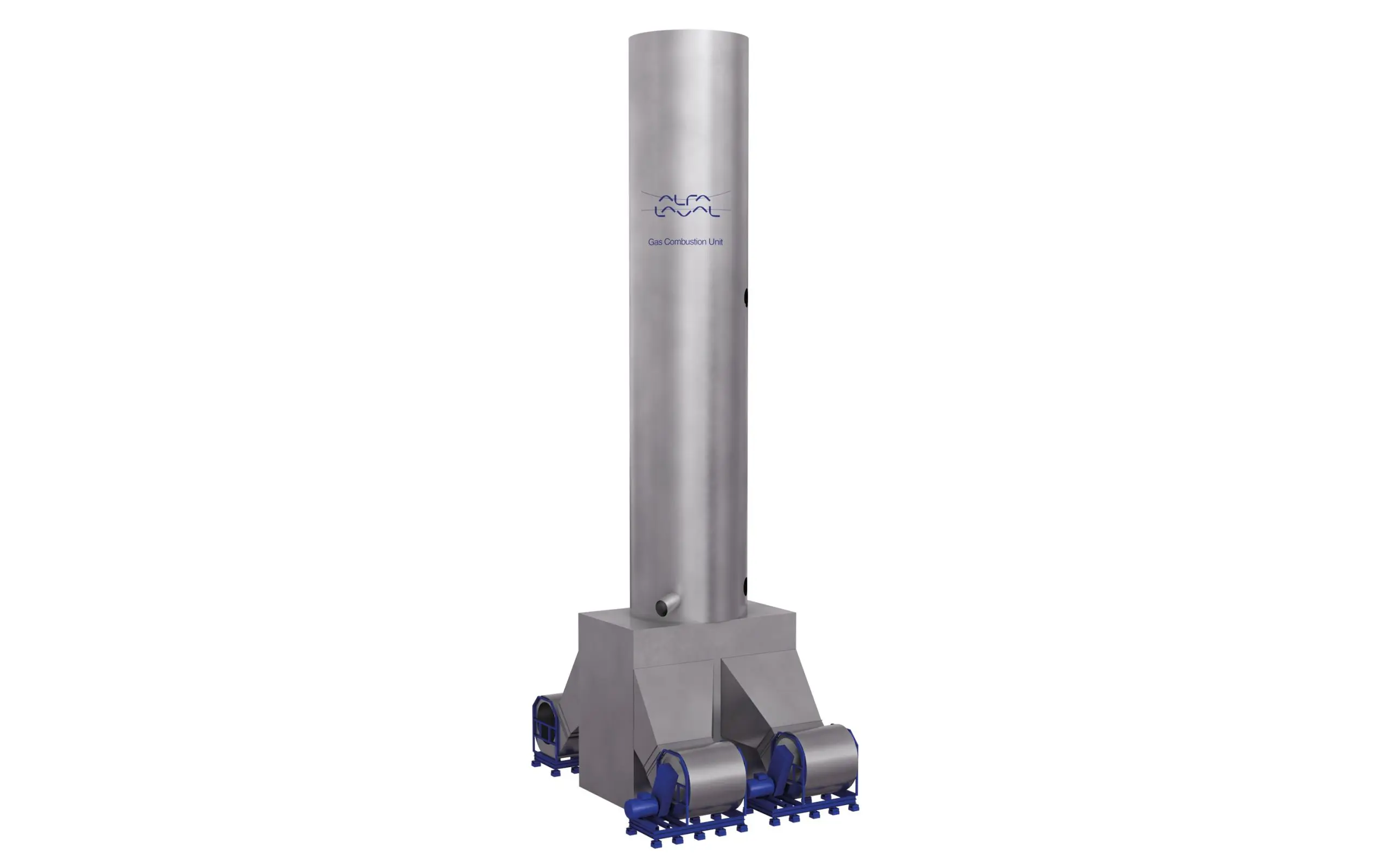A unit of LNG giant Shell and Sweden’s tech firm Alfa Laval are joining forces to develop a new gas combustion unit (GCU) for use on liquid hydrogen carriers.
In that regard, Shell International Trading and Shipping has signed a memorandum of understanding (MOU) with Alfa Laval as they look to pave the way for the safe transport of hydrogen by sea, according to a statement by the latter.
Under the memorandum, Alfa Laval said it would develop a system to safely combust hydrogen boil-off gas (BOG) from a vessel’s storage tank, as part of a new liquid hydrogen carrier.
Because the venting of cargo is restricted, a GCU offers a means of controlling tank pressure/temperature when the BOG poses safety risks beyond the tank’s design conditions, it said.
Design based on GCU for LNG
The design of the new GCU system for hydrogen would be based on the existing Alfa Laval GCU for LNG, the firm said.
Alfa Laval said that firms have installed more than 200 of these units in just over a decade while the company received orders for an additional 100 units during 2022.
The challenges in hydrogen combustion, however, are “significantly greater” than those involved with LNG, it said.
“With its boiling point of -253°C, hydrogen is expected to have a higher boil-off rate than methane, which will make having a GCU or similar means of BOG handling crucial on hydrogen carriers,” David Jung, business development manager at Alfa Laval, said in the statement.
“In addition, hydrogen is light, highly flammable and easy ignitable. Safety will be paramount when transporting it on board, so there are critical safety considerations when designing the GCU system,” Jung added.
Alfa Laval said it would design and engineer the new GCU for hydrogen with the aim of receiving an approval in principle (AIP) from an IACS classification society.
Once the firm receives AIP, it plans to build a GCU prototype for testing and type approval.
Shell’s hydrogen business on the rise
“Renewable hydrogen will likely be a key fuel in tomorrow’s decarbonization mix, but accessibility will determine its impact,” Carl Henrickson, general manager of shipping technology at Shell, said in the statement.
“By enabling safe ocean transport of liquid hydrogen, we can help speed up the global transition to clean energy and Shell’s target to become a net-zero emissions energy business by 2050,” he said.
Shell has been very active in the last two years to develop the company’s hydrogen business.
The company operates the world’s first LH2 carrier, Suiso Frontier. It is also working with French LNG containment giant GTT on a liquefied hydrogen membrane type containment system and an LH2 carrier.
Last year, the firm launched a hydrogen electrolysis plant at its Rheinland refinery near the German city of Cologne.
In July this year, the LNG giant took a final investment decision to build what it says is Europe’s largest renewable or green hydrogen plant in the Dutch port of Rotterdam.
After that, Shell signed a deal with three other partners to study the feasibility of producing, liquefying, and transporting green hydrogen from Portugal to the Netherlands.
Shell also recently joined forces with Japan’s Kansai Electric Power to explore and cooperate on business opportunities in LH2 supply chains.

